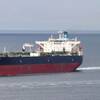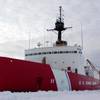As of January 1, several amendments to IMO Conventions went into effect, including:
December 1998 amendments to the Seafarers' Training, Certification and Watchkeeping Code
The amendments to the Seafarers' Training, Certification and Watchkeeping Code, which are aimed at improving minimum standards of
competence of crews sailing on ships carrying solid bulk cargoes, entered into force on January 1.
The amendments concern section A-II/1 and A-II/2 under "Cargo handling and stowage at the operational and management levels" and relate to
minimum standards of competence of crews, in particular relating to
loading and unloading of bulk carriers, since these procedures have the potential to put undue stresses on the ship's structure, and inspection
and assessment of damage to the cargo spaces, hatch covers and ballast tanks.
June 2001 amendments to the International Convention for the Safety of Life at Sea (SOLAS), 1974, as amended and to the INF Code
The amendments to SOLAS Chapter VII - Carriage of Dangerous Goods - and to the International Code for the Safe Carriage of Packaged Irradiated
Nuclear Fuel, Plutonium and High-Level Radioactive Wastes on Board Ships
(INF Code) entered into force on January 1, 2003. The amendments align both instruments with Amendment 30 to the International Maritime
Dangerous Goods (IMDG) Code.
June 2001 amendments to the International Code of Safety for High-Speed Craft
The amendments to the International Code of Safety for High-Speed Craft
(1994 HSC Code) entered into force on January 1, 2003. The amendments bring the provisions for navigational equipment of the 1994 HSC Code in
line with the relevant provisions of the 2000 HSC Code (which entered into force on July 1, 2002 for craft built after that date).
The amendments relate to requirements for carriage of voyage data
recorders for the provision of automatic identification systems (AIS).
Subscribe for
Maritime Reporter E-News
Maritime Reporter E-News is the maritime industry's largest circulation and most authoritative ENews Service, delivered to your Email five times per week










